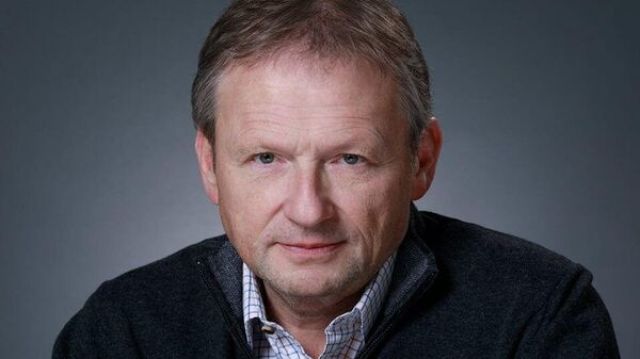The current crisis in the Russian economy is so large-scale and unprecedented that it is still impossible to assess losses and ways out of it, says Boris Titov, the Commissioner for the Protection of the Rights of Entrepreneurs under the President of the Russian Federation. In an interview with RIA Novosti, he told how Russian enterprises depend on imports, why it is not worth relying on China for everything now, and how to support private business so that it helps the country cope with the situation. Sergo Kuhianidze talked.
– Which sectors of the Russian economy have suffered the most from Western sanctions?
– You know, it is difficult to name industries that would not be affected by them in any way. The trouble is that our economy has developed so one-sidedly in recent decades that a huge number of its industries have become heavily dependent on imports. According to a recent study, more than 40% of our enterprises depend on imports, primarily from Western countries.
Moreover, we are talking about enterprises representing the most important industries. These are industrial equipment, electronics, automobile transport, rubber and plastic products, and pharmaceuticals. That is why the current economic crisis, which, admittedly, we have not yet fully felt, is special, unprecedented.
We are suffering today not only from officially adopted measures by Western governments, but also from the general negative mood of their business towards Russia. That is, we are talking about sanctions that are not written on paper, but are implemented as a result of independent decisions of certain companies and banks.
Thus, even without being under sanctions, they voluntarily renounce their contracts, transactions, close not only corporate, but also private Russian accounts. If payments are still being made, then it sometimes takes weeks to check for each of them. In short, the anti-Russian policy of Washington and Brussels has had its effect. They are trying to strangle us economically now. No other state in the world has ever experienced such severe sanctions pressure.
– Is the total damage from anti-Russian sanctions, of which, as far as we know, more than six thousand have already been introduced, estimated?
- If someone tells you such a figure, don't believe it. Since it is impossible to assess the total damage from sanctions. After all, different industries suffer from sanctions in different ways. Not to mention the fact that our business, of course, does not sit idly by, looking for all sorts of loopholes, both financial and logistical.
Logistics, by the way, has generally turned into the biggest headache today. After all, there are products that are not subject to sanctions, but which are simply physically impossible to deliver to Russia now.
The company Maersk, the largest carrier of sea cargo, as you know, on its own initiative refused to do business with us. Plus, the West has just imposed another ban on Russian ships entering foreign ports. Therefore, now our businessmen are urgently looking for some other options for transporting goods through, for example, Kazakhstan, Uzbekistan, Azerbaijan, Turkey. Of course, all this "costs a pretty penny". But there is no other way out yet.
– So, we need to roll up our sleeves and rush the whole country to import substitution?
– Yes, it is necessary for all of us today to roll up our sleeves in order to pull the country out of the most difficult situation, but at the same time we cannot rush thoughtlessly to import substitution in any case. Despite the importance of import substitution, it should not become a fetish. The fact is that it will not be possible to replace everything that we have imported so far by 100%. I will say more: it is not necessary to strive for this.
You see, currently there is not a single country in the world that would fully provide itself with everything that a modern consumer needs. Even North Korea, with their extremely reduced domestic needs, cannot do without international cooperation.
Therefore, our approach to import substitution should be pragmatic. First of all, of course, it is necessary to look for imported analogues in Russia-friendly countries to replace the ones that have gone. By the way, there are more than a hundred such countries. Russia is not in total isolation, as the West is trying to convince everyone.
– Which friendly countries should Moscow pay close attention to now?
– Here we also need to think hard, understand what we need, and how, from whom it is best to take it. After all, not everything that is done in the USA or in the EU can now be easily found in the same Asia or on other continents. The technological progress of America and Europe is still higher than anywhere else.
It is also not necessary to rely on China in everything, although they have recently made serious steps in many industries. I am the co-chairman of the Russian-Chinese Friendship, Peace and Development Committee, so I know the situation from the inside. With all the highest political and diplomatic cooperation with Beijing, we have our own problems in the economic field.Now, for example, many companies and banks in China are frankly afraid to work with us, as they are seriously afraid of secondary sanctions from Washington, which remains their main trading partner.
We are only in 13th place in this row. Not to mention the long-standing problem between us in mutual settlements. We have not been able to fully switch to settlements in national currencies for 20 years, which would allow both sides to get away from dollar dependence. Perhaps the process will help speed up the creation of clearing centers, special banks.
– I see. And what do you think we ourselves need to do in terms of import substitution?
– We urgently need to deploy the production of something that, in principle, is not among imported analogues (for example, a number of spare parts for trucks). These productions can be opened not only in the country, but even abroad, for example, in neutral countries where there are no problems with the supply of equipment. If we do not take up the creation of domestic production facilities for the production of competitive products now, then in three years these niches will be occupied by manufacturers from third countries.
I also believe that enterprises in the country must necessarily produce at least part of the means of production (equipment and machines), as well as provide themselves with high-quality seed material for the agricultural industry. Is it acceptable that Russia imported the lion's share of seeds for potatoes, for example, until recently from EU countries! Striving for such self-sufficiency is not just necessary, but vital.
The country should have a margin of safety in key positions that are fundamental to the life of the state. It is needed even when foreign trade is absolutely free from restrictions, and you can buy everything you need. Especially now, when we find ourselves in much more difficult conditions. So today this problem needs to be solved on the go and with all the effort.
– By the way, import substitution is not a new word for us. The country started talking about it back in 2014, when after the entry of Crimea and Sevastopol into Russia, the West began to announce its economic sanctions to Moscow. Are there any areas where progress has been made in import substitution over these eight years?
- of course. For example, we have established the production of various cheeses. Our cheese makers began to make cheeses that were highly appreciated even by the most demanding specialists in the world. We have completely abandoned the purchase of apples in Poland, from the import of poultry products, although we still buy eggs, we have achieved success in viticulture, we were recognized, as a result, Russian, by the way, has become the official language of the International Organization of Viticulture and Winemaking.
In addition to agriculture, progress in import substitution has also been achieved in agricultural machinery, in the production of building materials, and partly in the IT field and in pharmaceuticals. The automotive industry has its own production facilities, but its dependence on imports is still enormous. There are other areas. I recently learned that Kaliningrad produces magnificent snowmobiles, 100% Russian products, which the plant supplies, for example, even to the USA. Yes, there are safe islands, but they do not make the weather.
– Then what should we do?
– In order to build a normal economy, I call it the economy of simple things, it is necessary to create such conditions in Russia that it would be profitable for a domestic manufacturer to do business in the country. For this, I am sure, it is necessary to implement a new monetary policy, Russia should switch to a scheme that works successfully in many countries.
Companies issue bonds that the government buys from them so that they can implement a particular project (quantitative easing policy – ed.). When it is implemented, the company returns the money within the agreed time frame. That is, it is necessary for monetary policy to turn into monetary and industrial policy.
In general, if all the necessary measures required today to get out of the acute crisis can be expressed in two words, then they sound like this: stop strangling business.
If we want to survive, we need to remove from private business all the numerous restrictions imposed on it from all sides by the all-powerful Russian bureaucracy, which does this either out of thoughtlessness, or out of fear coming from Soviet times, as if something did not happen, or guided by its own selfish interests.
– Well, what is happening with Titov's list today, are Russian businessmen who have made their fortunes in Russia ready to return to their homeland to help her in such a difficult hour?
– Of course, the crisis is making its own adjustments, relations with the West are becoming more and more difficult every day, but I can say that there are nevertheless business people who want to return, even in such a situation. However, Russian law enforcement agencies discourage them from any desire to do this. Businessmen are ready not only to come, but also to be, as required by law, under investigation, but so that it is open, so that while it is going on, they are free. So that they finally have the right and opportunity to prove their innocence not from prison. But the state responds to all this: let them come, and we'll see whether to plant them or not. It is clear that with this attitude, no one will return.
– Are there any changes in the amnesty of Russian entrepreneurs who are currently under investigation in the country, who are serving time in jail?
– There is still a difficult situation here, no special changes are visible yet. Last year, for example, the number of cases involving entrepreneurs increased by another 7%, and the number of businessmen sitting in jail today has also increased, although their guilt has not yet been proven.
Therefore, we are trying to come up with some new schemes that could solve this problem in the current conditions. Of course, their complete amnesty would be ideal, because among all these entrepreneurs there are many truly excellent organizers of production. It would be better for all of them to be free and do business, the same import substitution, create jobs, than to spend time in jail.





